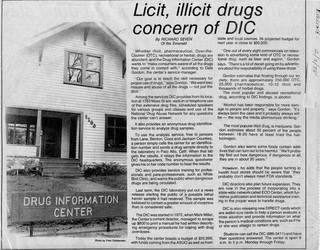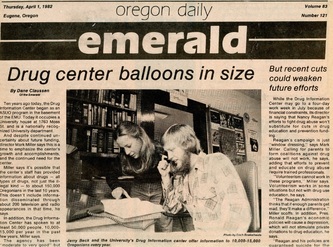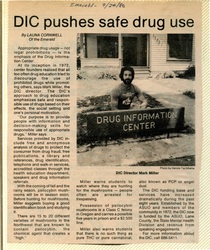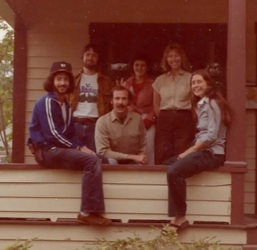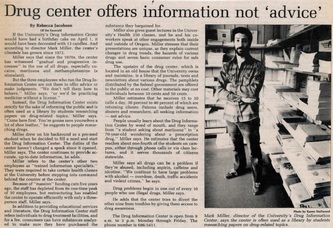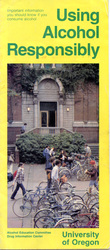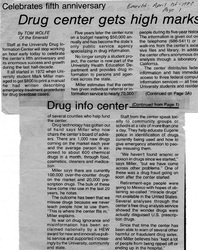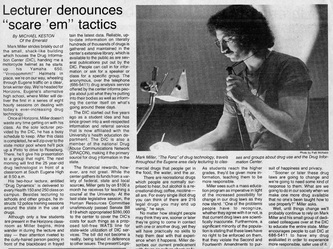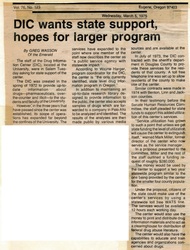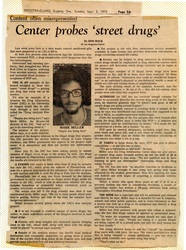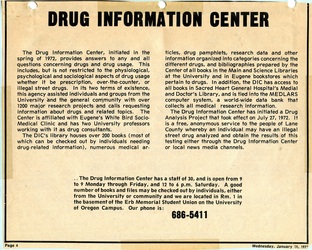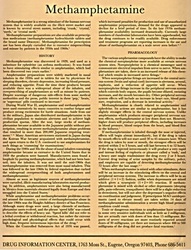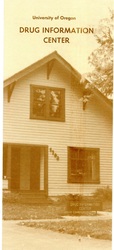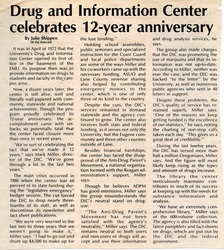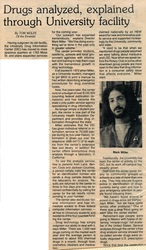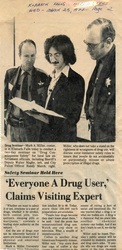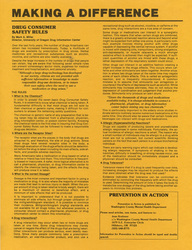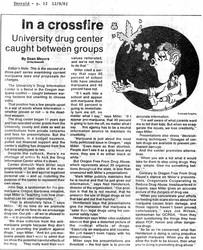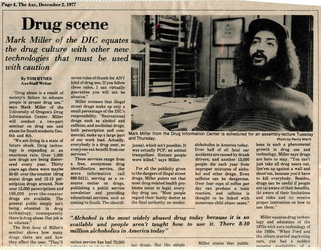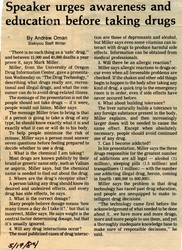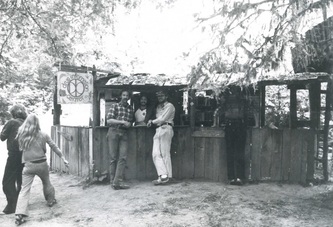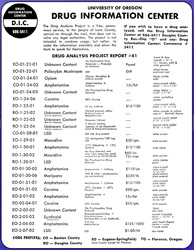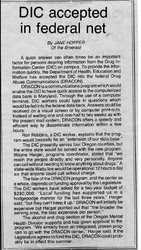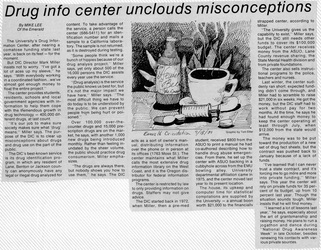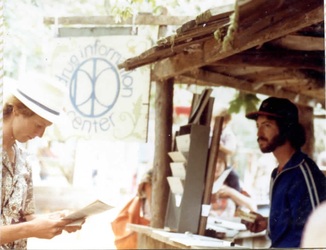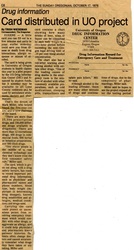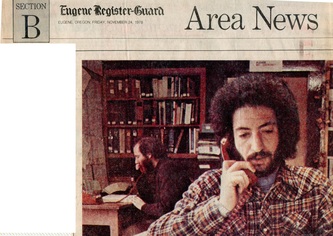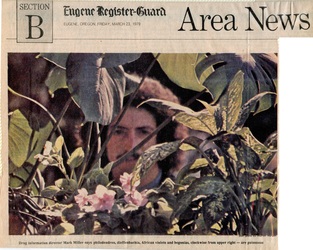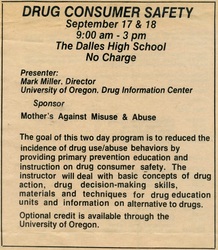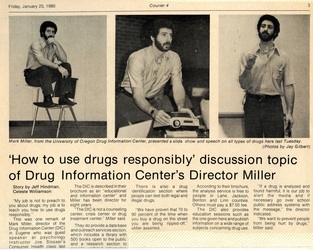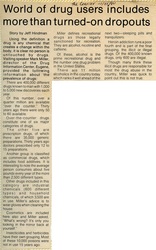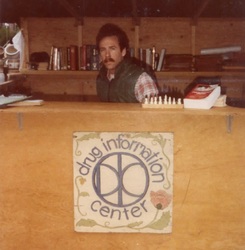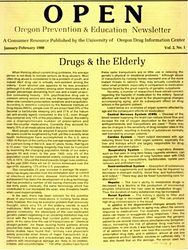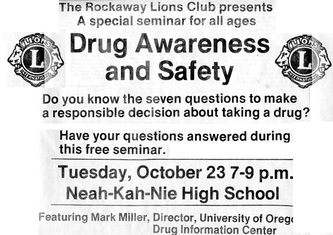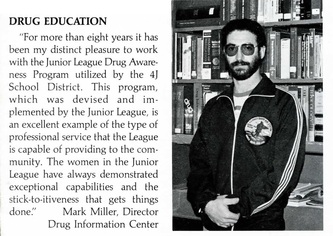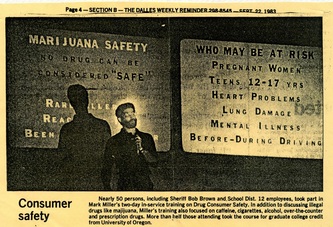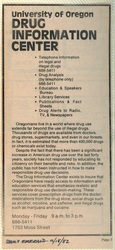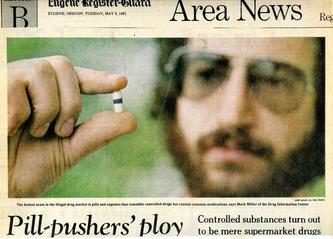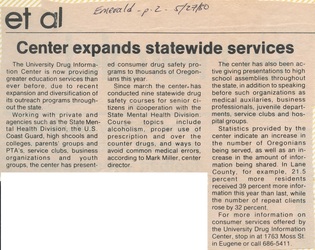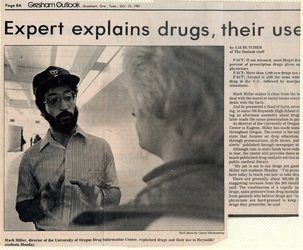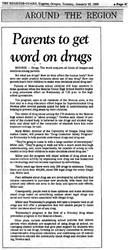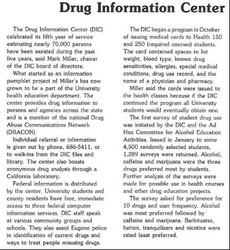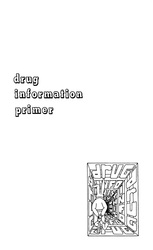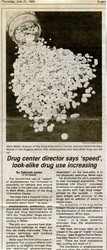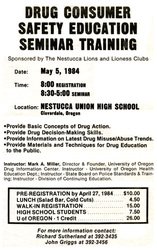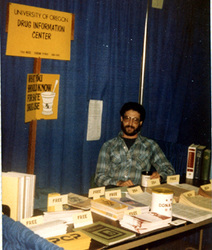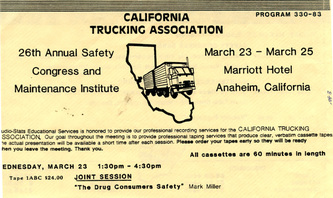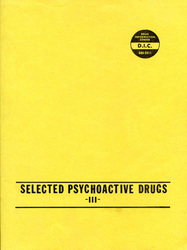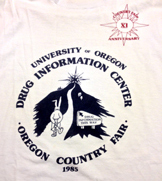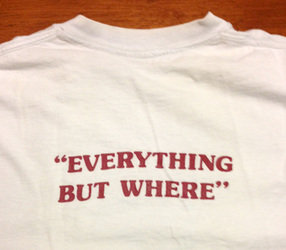
The University of Oregon Drug Information Center was part of the former University of Oregon Department of School and Community Health.
A state-wide extension service, the center provided documented information, research and education on any drug: prescription, over-the-counter, recreational (alcohol, caffeine, nicotine) illegal or environmental.
Mandated to provide accurate information and no counseling, the Drug Information Center provided tens of thousands of Oregonians annually with information, research services, education, training, publications and anonymous drug analysis.
A state-wide extension service, the center provided documented information, research and education on any drug: prescription, over-the-counter, recreational (alcohol, caffeine, nicotine) illegal or environmental.
Mandated to provide accurate information and no counseling, the Drug Information Center provided tens of thousands of Oregonians annually with information, research services, education, training, publications and anonymous drug analysis.
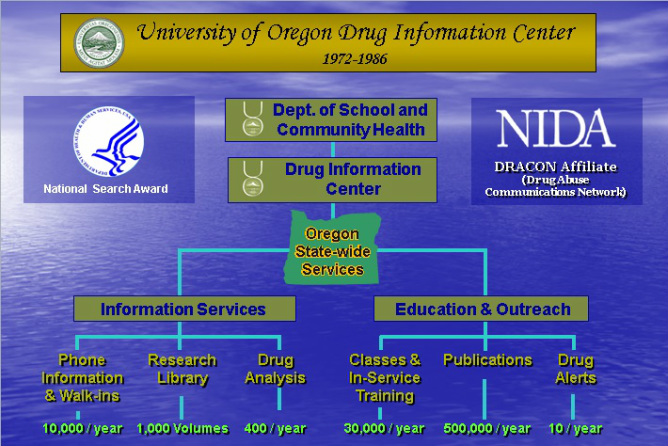
In fourteen years of providing services, the Center was the first university-based extension agency in the country to make a full array of drug information services available to the public.
The comprehensive services allowed public access to accurate and timely information to make informed and responsible decisions about drug use.
In 1976 the Center was awarded a National Search Award from the US Dept. of Health, Education and Welfare as a model, replicable education program.
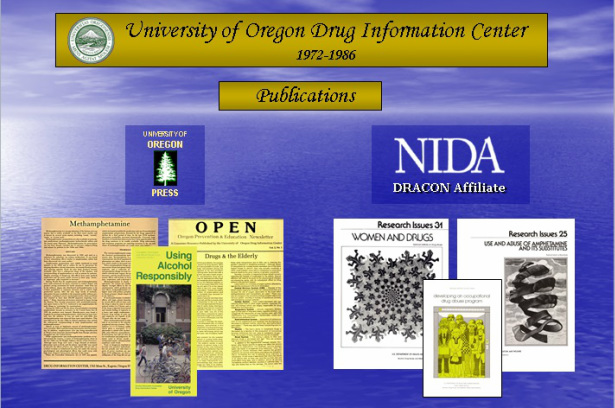
As one of it's largest out-reach functions, the Center's extensive publication services included production of the State of Oregon Drug Fact Sheets, a prevention newsletter distributed state-wide, and pamphlets on Drug Consumer Safety Rules.
The Drug Information Center was also the DRACON (Drug Abuse Communications Network) affiliate for Oregon to the National Institute on Drug Abuse.
In this role the Center distributed thousands of specialized research monographs, summarizing the state of information and research for specific at-risk populations.
The Drug Information Center was also the DRACON (Drug Abuse Communications Network) affiliate for Oregon to the National Institute on Drug Abuse.
In this role the Center distributed thousands of specialized research monographs, summarizing the state of information and research for specific at-risk populations.
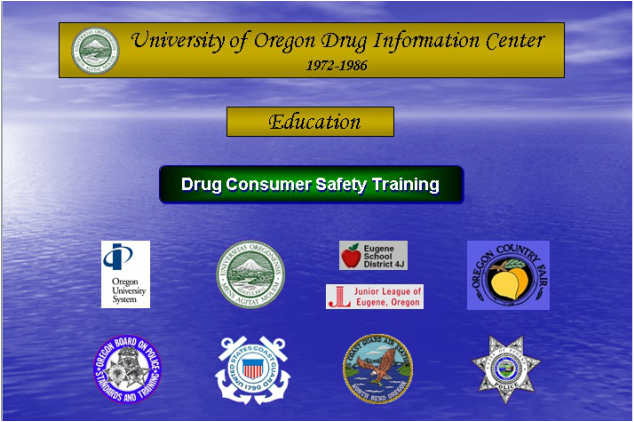
A hallmark of the Drug Information Center was it's Drug Consumer Safety education outreach to numerous populations.
A Drug Consumer Safety orientation was required of all students, and graduate level courses made the center a strong campus presence.
The Center trained the Eugene Junior League to provide Eugene 4J school district elementary and junior high schools with Drug Consumer Safety Education.
Drug Consumer Safety assemblies and classes were provided to schools statewide, and training was provided to agencies as diverse as the State of Oregon Police Academy, Eugene Police Department, US Coast Guard and the Oregon Country Faire.
A Drug Consumer Safety orientation was required of all students, and graduate level courses made the center a strong campus presence.
The Center trained the Eugene Junior League to provide Eugene 4J school district elementary and junior high schools with Drug Consumer Safety Education.
Drug Consumer Safety assemblies and classes were provided to schools statewide, and training was provided to agencies as diverse as the State of Oregon Police Academy, Eugene Police Department, US Coast Guard and the Oregon Country Faire.
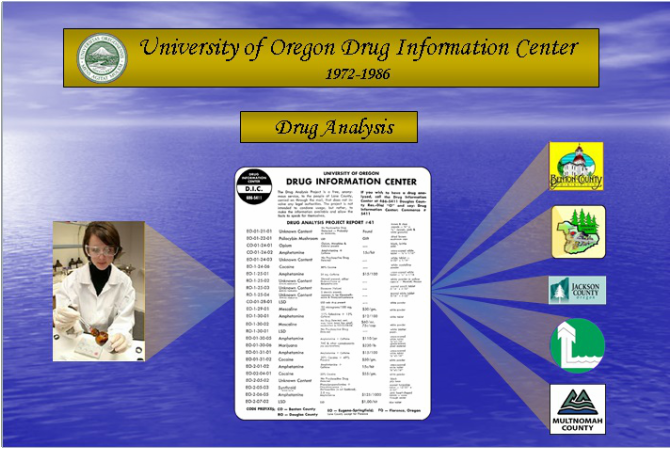
One of the most notable services was the country's first Anonymous Drug Analysis Project for illegal drugs provided free to the public.
Thousands of drugs were analyzed to reveal extensive drug fraud and adulteration. The results were published in Sunday newspapers statewide.
The project was the first to show widespread fraud committed on senior citizens going to Mexico thinking they could get drugs unavailable in the US.
Drug Alerts on dangerous drugs were publicized statewide.
Thousands of drugs were analyzed to reveal extensive drug fraud and adulteration. The results were published in Sunday newspapers statewide.
The project was the first to show widespread fraud committed on senior citizens going to Mexico thinking they could get drugs unavailable in the US.
Drug Alerts on dangerous drugs were publicized statewide.
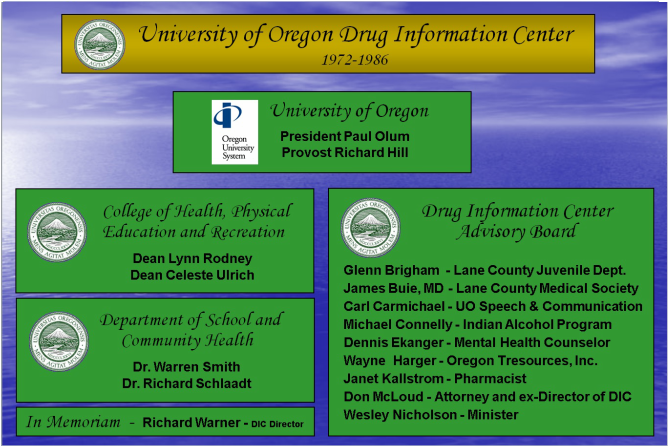
A Special Thanks
Throughout its years of service, key individuals at the University of Oregon and in the community insured that the Drug Information Center's education, publications and services were accurate and in the best interests of the students and the public it was serving.
Without the efforts of these and many others unlisted, thousands of Oregonians might have been harmed or killed by The Drug Technology. Thank you.
The Drug Information Center Gallery
The gallery is a collection of articles and pictures reflecting the history of the University of Oregon Drug Information Center. As both a health education agency and a university out-reach extension service, the center's success was measured by the amount of information being conveyed to the public.
The Center's out-reach was extensive and served a variety of populations state wide, including schools, law enforcement, senior service centers, community organizations and the Oregon Country Faire. The center carried its message of Drug Consumer Safety with today's Drug Technology far and wide to reduce harm and death.
The gallery is a collection of articles and pictures reflecting the history of the University of Oregon Drug Information Center. As both a health education agency and a university out-reach extension service, the center's success was measured by the amount of information being conveyed to the public.
The Center's out-reach was extensive and served a variety of populations state wide, including schools, law enforcement, senior service centers, community organizations and the Oregon Country Faire. The center carried its message of Drug Consumer Safety with today's Drug Technology far and wide to reduce harm and death.

